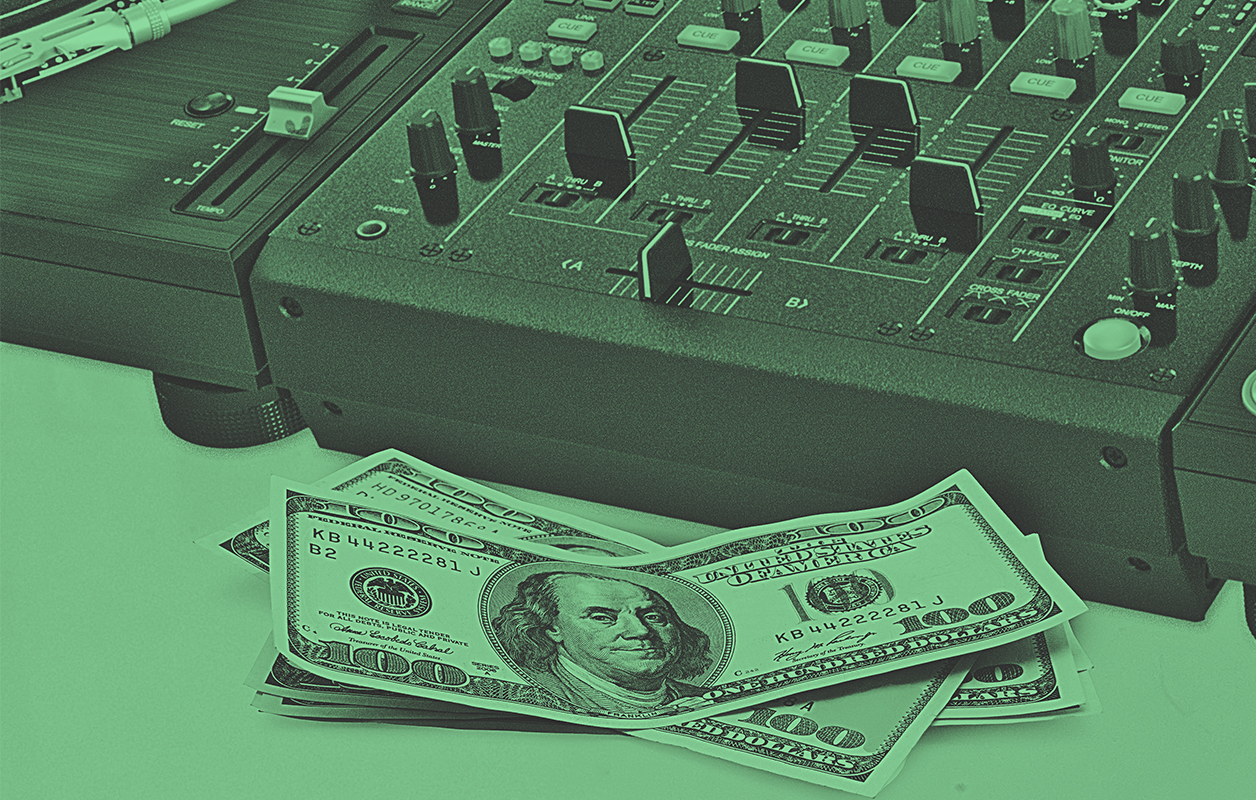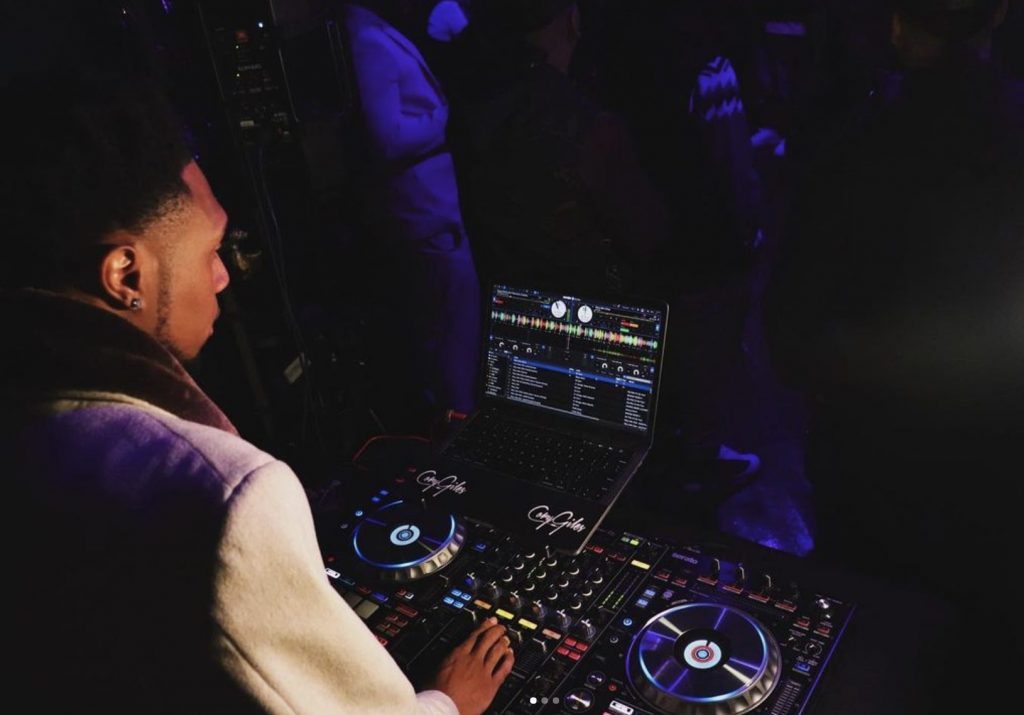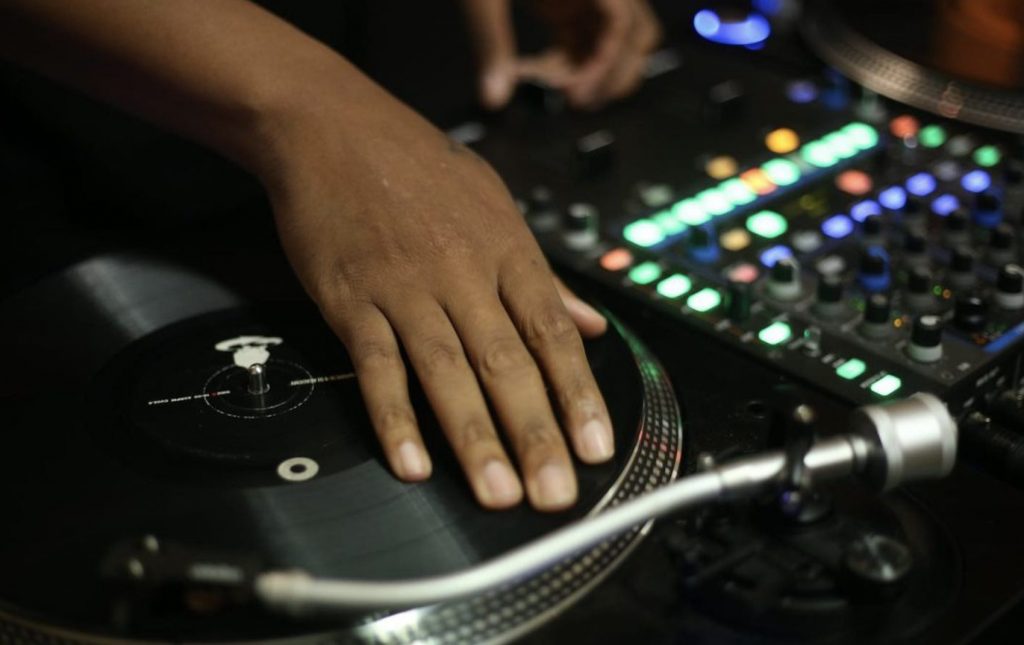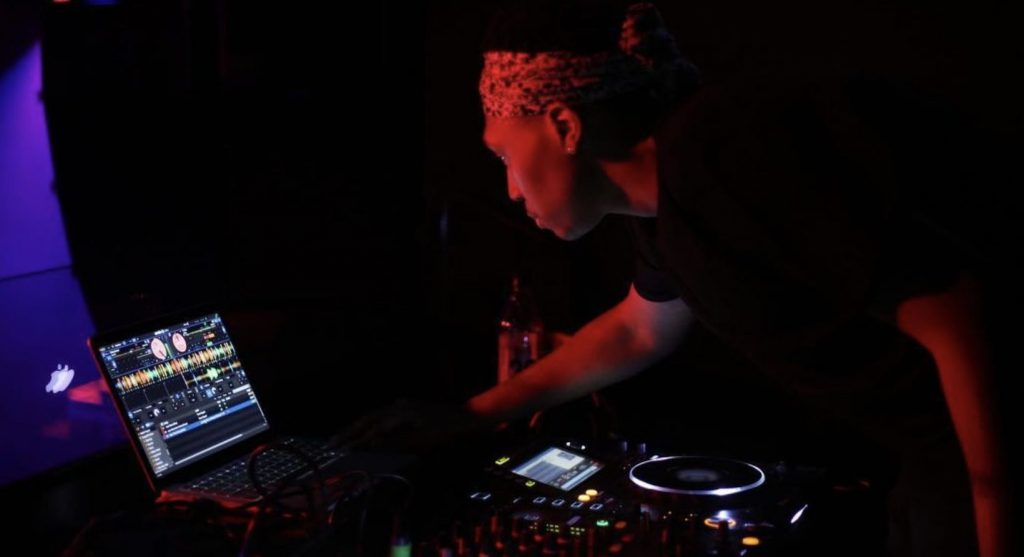
After facing a global pandemic and the COVID-19 virus for more than a year and a half, there is an issue plaguing the DJ community. It may seem more apparent now than ever, but in reality, this issue has been around long before “Rona.” I’m talking about the age-old question, how much should we charge for our DJ services?
After almost a year of no work for many DJs, it’s a tricky time returning to gigs and collecting the proper income. Businesses have suffered just like us, so how do we approach them? What price is too high? Let me take you through some questions and a simple guide that can help you measure your own pay scale and get properly compensated for your skills and services.

Things to Consider
Start by asking yourself a few questions about your experience and the types of gigs you’re looking to do.
- How long have you been DJing professionally?
- Are you on the radio?
- Do you have any high-end clientele?
- Have you had any media exposure?
- Are you bringing your own equipment, and if so, what kind?
- Does this gig require travel, and if so, how much?
Now, these are just a few of the questions you need to ask on your end. You should also consider the business you are providing your services to and the expenses they will incur. Here are a few more questions you should consider on behalf of the client:
- Is this a corporation, a small business, or a private event?
- What kind of business? (For example, clothing store, nightclub, sporting venue.)
- How long have they been in business, and were they affected by the pandemic?
- Is this a busy season, off-season, or regular season?
- Do they use DJs often? (Try to find out their typical pay scale for DJs if so.)
- Do you have an existing relationship with the client, have you worked for them before, and are they looking to create a lasting partnership with you as a DJ?
Asking all of these questions to yourself is important and will help you to nail down your worth for different gigs across all types and sizes. Plus, asking these questions and having a strong line of communication with the client will help you create a prosperous business relationship. As DJs, we must remember that we don’t want one-off gigs with a client – we want to have them book us for multiple occasions!

So, let’s start breaking down the actual numbers and my suggestions for how much to charge. Disclaimer: Keep in mind this is based on my personal research (speaking to other DJs and business owners) and should only be used as suggestions.
The “Rookie”
Rookie DJs with one to three years of experience can use this pay scale as a suggestion. Also, note that I don’t count mic work or scratching since this typically comes with more experience.
With no equipment provided:
1 Hour – $75
2 Hours – $150
3 Hours – $200
4 Hours – $250
6-8 Hours – $450
With equipment provided, such as a DJ controller, turntables, speakers, microphone, and anything for the setup like a table or laptop stand:
1 Hour – $125
2 Hours – $250
3 Hours – $350
4 Hours – $450
6-8 Hours – $650
Intermediate DJs
DJs with three to five years of experience fall under this category. Maybe you have some schooling or lessons, you’re pretty good on the mic, and you’re able to perform basic scratch techniques.
With no equipment provided:
1 Hour – $125
2 Hours – $250
3 Hours – $350
4 Hours – $450
6-8 Hours – $650
With equipment provided:
1 Hour – $175
2 Hours – $350
3 Hours – $450
4 Hours – $550
6-8 Hours – $750
The Pro
DJs with five or more years of experience fall under the “pro” level here. Please note, this does not include radio experience, as we’ll cover more of that later.
With no equipment provided:
1 Hour – $200
2 Hours – $400
3 Hours – $600
4 Hours – $800
6-8 Hours – $1000
With equipment provided:
1 Hour – $300
2 Hours – $500
3 Hours – $700
4 Hours – $900
6-8 Hours – $1200
If you can check off any of the boxes below, consider upping your price from the “pro” level by about $100-$200.
- Experience with corporate clients (Microsoft, T-Mobile, Apple, or Adidas)
- Consistent media exposure (MTV, VH1, Complex)
- Earned any major accolades as a DJ (DMC Championships, Goldie Awards, IDA Championships)
Radio & TV DJs
If you’re a DJ with TV or movie appearances, you’re in the right place. And if you DJ for major market radio stations such as Hot 97, Power 106, Sirius XM, Apple Music 1, or Dash Radio, this is also where you want to look for your pay scale. Exposure on radio and TV definitely can boost your pay scale and score bigger gigs (regardless of years of experience and other technical factors).
With no equipment provided:
1 Hour – $500
2 Hours – $1000
3 Hours – $1500
4 Hours – $2000
6-8 Hours – $3500
With equipment provided:
1 Hour – $700
2 Hours – $1400
3 Hours – $2000
4 Hours – $3000
6-8 Hours – $4000

Closing Thoughts
When reaching out to clients, remember to be professional and use a professional email. Also, have your EPK or one-sheet ready along with a demo, and make sure your social media is clean.
When negotiating, be sure to remember what you’re worth, but also keep the client’s needs in consideration. If you have to lower your price, I would not recommend anything lower than a discount of 10-25% off your final charge.
I hope this guide for how to charge for your DJ gigs offers some solid tips and a good starting point for gauging your specific pay rate. Now, go send out that first email and get the ball rolling!

